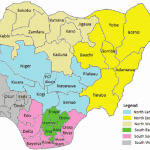Last Updated on October 5, 2025 by admin
Do you want to start up little business and you don’t know the kind of business to venture into? “There’s no shortage of remarkable ideas, what’s missing is the will to execute them.The way to get started is to quit talking and begin doing
The road to success and the road to failure are almost exactly the same, Little or No capital prevents entrepreneurs from achieving their goal as they strive towards owning their own firm, but only a few actually have the courage to start when they have little capital.
Successful people do what unsuccessful people are not willing to do. Don’t wish it were easier; wish you were better.entrepreneurs in Africa often struggle to secure investment. When it comes to small businesses, They are known to exhibit a steady and increasing economic standing in the society, due to their innate entrepreneurial abilities.
This content will provide 9 low-cost business ideas for entrepreneurs.
Starting a business with minimal capital is absolutely possible—especially if you leverage your skills, time, and creativity. Here are 9 business ideas that require little to no upfront investment:
Read: Palmpay office address location and how to contact customer care via Email and Phone number
1. Freelance Services
Freelance services are one of the most accessible and flexible businesses you can start with little or no capital. Here’s how to get started and thrive:
Pick a niche based on your strengths and interests:
| Skill Area | Example Services | Tools to Learn/Use |
|---|---|---|
| Writing & Editing | Blog posts, copywriting, proofreading | Grammarly, Hemingway, Word |
| Graphic Design | Logos, flyers, social media posts | Canva, Adobe Illustrator |
| Web Development | Websites, landing pages, bug fixes | WordPress, HTML/CSS, GitHub |
| Digital Marketing | SEO, email campaigns, ads | Google Analytics, Mailchimp |
| Video & Audio Editing | YouTube videos, podcasts, reels | CapCut, Audacity, Premiere Pro |
| Virtual Assistance | Admin tasks, scheduling, data entry | Google Workspace, Trello |
| Translation | Documents, subtitles, websites | DeepL, Google Translate |
How to Start Freelancing with No Money
You don’t need fancy equipment—just a smartphone or laptop and internet access.
- Choose your niche: Focus on what you’re good at.
- Create a portfolio: Use free tools to showcase sample work.
- Join platforms: Sign up on Fiverr, Upwork, Freelancer, or local platforms like Jobberman.
- Set your rates: Start modest, then increase as you gain experience.
- Market yourself: Use LinkedIn, Instagram, or WhatsApp to promote your services.
- Deliver quality: Build trust through great work and communication.
- Startup cost: Internet + laptop
- Scalable: Yes, can grow into an agency
2. Social Media Management
Social media management is a powerful business you can start with little or no capital—especially in a digital-first market like Nigeria. Here’s a full breakdown to help you launch and grow:
It involves managing a brand’s online presence across platforms like Instagram, Facebook, TikTok, LinkedIn, and X (formerly Twitter). You create content, engage followers, run ads, and track performance.
Help small businesses manage their Instagram, Facebook, TikTok, or LinkedIn accounts.
What You Need to Start
You don’t need fancy gear—just a smartphone, internet access, and creativity.
| Essentials | Free Tools to Use |
|---|---|
| Smartphone or laptop | Canva, CapCut, Snapseed |
| Internet connection | Meta Business Suite, Buffer, Hootsuite |
| Basic design skills | Canva tutorials on YouTube |
| Writing skills | Grammarly, ChatGPT (for drafts) |
Services You Can Offer
Start with basic packages and expand as you grow:
- Content creation: Graphics, captions, reels
- Scheduling & posting: Automate posts across platforms
- Engagement: Reply to comments, DMs, and grow followers
- Analytics: Track growth, reach, and engagement
- Ad management: Run Facebook/Instagram ads for clients
How to Get Clients
- Start with small businesses: Boutiques, salons, restaurants
- Offer free trials: One week of content to prove your value
- Use WhatsApp & Instagram: Showcase your work and testimonials
- Join local business groups: Facebook groups, Telegram channels
- Create a portfolio: Use Canva to design a simple PDF or Instagram highlights
- Startup cost: Smartphone + internet
3. Tutoring or Coaching
Tutoring or coaching is one of the most rewarding and low-cost businesses you can start—especially if you’re passionate about helping others grow. Whether you’re teaching math, guiding people through career transitions, or coaching them on fitness or mindset, here’s how to turn your knowledge into income:
Tutoring vs. Coaching: What’s the Difference?
| Type | Focus | Ideal For |
|---|---|---|
| Tutoring | Academic subjects, languages | Students, exam prep (WAEC, JAMB) |
| Coaching | Personal or professional growth | Adults, entrepreneurs, creatives |
What You Can Teach or Coach
Choose a niche based on your expertise and passion:
Tutoring Ideas
- English, Math, Biology, Chemistry
- French or Yoruba language lessons
- Coding for kids or beginners
- WAEC, NECO, JAMB prep
Coaching Ideas
- Career coaching (CV, interviews, job search)
- Life coaching (confidence, habits, mindset)
- Business coaching (strategy, branding)
- Fitness or wellness coaching
Tools You Need (Most Are Free!)
- Zoom or Google Meet for virtual sessions
- WhatsApp or Telegram for communication
- Canva for worksheets or slides
- Google Docs for lesson plans
- Calendly for scheduling
How to Start with No Capital
- Pick your niche: What do people ask you for help with?
- Create a simple offer: e.g., “I help students pass WAEC Biology.”
- Start with free sessions: Build testimonials and confidence.
- Promote on social media: Share tips, success stories, and client wins.
- Use referrals: Ask happy clients to spread the word.
Pricing Ideas (in Naira)
| Service Type | Format | Suggested Price |
|---|---|---|
| Group tutoring | 1-hour online class | ₦1,000–₦3,000/student |
| Private tutoring | 1-on-1 session | ₦5,000–₦10,000/session |
| Coaching package | 4-week program | ₦20,000–₦50,000 |
- Startup cost: None if done online
- Tip: Use Zoom or Google Meet for sessions
4. Dropshipping
Dropshipping is a brilliant way to start an online business with almost zero upfront capital—especially if you’re in Nigeria and want to tap into global or local markets. Here’s how it works and how to get started:
What Is Dropshipping?
Dropshipping is a retail model where you sell products without keeping inventory. When a customer places an order, you forward it to a supplier who ships the product directly to the customer.
- You handle: Marketing, customer service, and storefront
- Supplier handles: Inventory, packaging, and shipping
What You Need to Start
| Requirement | Free or Low-Cost Tools |
|---|---|
| Online store | Shopify (paid), WooCommerce (free), Selar (local) jumia ,konga |
| Product sourcing | AliExpress, CJ Dropshipping, Spocket |
| Payment gateway | Paystack, Flutterwave, Stripe |
| Marketing tools | Canva, Meta Ads, TikTok Ads |
| Customer support | WhatsApp Business, Gmail |
Best Niches for Nigerian Dropshippers
Choose products that solve problems or spark desire:
- Fashion accessories (watches, sunglasses, jewelry)
- Phone accessories (cases, chargers, earbuds)
- Home decor and kitchen gadgets
- Fitness gear (waist trainers, resistance bands)
- Baby products (diapers, toys, carriers)
Steps to Launch Your Dropshipping Business
- Pick a niche: Focus on products people want or need.
- Find suppliers: Use AliExpress or local suppliers with delivery options.
- Set up your store: Use Shopify, WooCommerce, or even Instagram Shop.
- Add products: Use clear photos, catchy descriptions, and competitive pricing.
- Promote your store: Run ads on Facebook, Instagram, or TikTok.
- Handle orders: Forward customer details to supplier and track delivery.
- Provide support: Be responsive and build trust.
Tips for Success
- Start with 1–3 products: Test before scaling.
- Use video ads: They convert better than static images.
- Offer COD (Cash on Delivery): Builds trust in Nigeria.
- Track trends: Use Google Trends or TikTok to spot hot products.
- Automate: Use tools like Oberlo or DSers to streamline order processing.
Profit Example
Let’s say you sell a phone holder:
- Cost from supplier: ₦2,000
- Selling price: ₦5,000
- Profit per sale: ₦3,000
- 10 sales/day: ₦30,000 daily profit
5. Handmade Crafts or Art
Starting a handmade crafts or art business is a beautiful way to turn your creativity into cash—especially in Nigeria, where local artistry and cultural expression are highly valued. Whether you’re making jewelry, paintings, clothing, or home decor, here’s how to build a thriving business with little or no capital:
What You Can Create and Sell
| Category | Examples | Materials Needed |
|---|---|---|
| Jewelry | Beaded necklaces, earrings, bracelets | Beads, strings, clasps |
| Fashion | Ankara bags, tie-dye shirts, crochet wear | Fabric, thread, dye, yarn |
| Art & Decor | Paintings, wall hangings, sculptures | Canvas, paint, clay |
| Stationery | Handmade cards, journals, bookmarks | Paper, glue, pens |
| Accessories | Hair clips, keychains, phone holders | Resin, fabric scraps |
What You Need to Start
You don’t need a studio—just a corner of your home and basic tools.
- Workspace: A clean table or mat
- Materials: Start small—buy only what you need
- Phone camera: For taking product photos
- Free tools: Canva (for flyers), Instagram (for marketing), WhatsApp Business (for orders)
Where to Sell Your Crafts
- Instagram & TikTok: Showcase your process and products
- WhatsApp Catalog: Easy for local orders
- Selar or Paystack Storefront: Set up a simple online shop
- Local markets or pop-ups: Attend fairs or church bazaars
- Etsy or Jumia: For broader reach (if you can handle shipping)
Tips for Success
- Tell your story: People love buying from creators with passion
- Use good lighting: Natural light makes your photos pop
- Offer custom orders: Personalized items sell well
- Bundle products: E.g., “Gift set: earrings + bracelet”
- Celebrate culture: Use local themes, proverbs, or fabrics
Pricing Strategy
Factor in materials, time, and profit margin:
- Cost of materials: ₦500
- Time spent: 1 hour
- Selling price: ₦2,000–₦3,000
- Profit: ₦1,500+ per item
6. Blogging or Vlogging
Blogging and vlogging are powerful ways to build a brand, share your voice, and earn money—with little or no startup capital. Whether you’re in Lagos or anywhere else, all you need is a smartphone, internet access, and a niche you’re passionate about.
Blogging: Share Your Thoughts in Writing
What You Can Blog About
Pick a niche that excites you and solves problems for others:
- Personal finance (e.g., saving money in Nigeria)
- Fashion and beauty
- Tech and gadgets
- Parenting and relationships
- Travel and food
- Faith and motivation
How to Start
- Choose a platform: Medium (free), WordPress (free/paid), Blogger
- Pick a niche: Focus on one topic to build authority
- Write consistently: Aim for 1–2 posts per week
- Promote your blog: Share on WhatsApp, Instagram, Facebook
- Monetize:
- Google AdSense
- Affiliate marketing (e.g., Jumia, Konga)
- Sponsored posts
- Sell digital products (eBooks, templates)
Vlogging: Share Your Life in Video
What You Can Vlog About
- Daily life in Lagos
- Tutorials (makeup, cooking, tech)
- Reviews (phones, apps, fashion)
- Motivation or faith-based messages
- Comedy or skits
How to Start
- Use your phone: Start with what you have
- Create a YouTube channel: Free and easy
- Pick a niche: Helps attract loyal viewers
- Edit with free apps: CapCut, InShot, VN
- Promote on social media: TikTok, Instagram, WhatsApp
- Monetize:
- YouTube Partner Program (once eligible)
- Brand deals and sponsorships
- Sell your own products or services
Tips for Success
- Be authentic: People connect with real stories
- Use good lighting: Natural light works wonders
- Engage your audience: Reply to comments, ask questions
- Stay consistent: Build trust and momentum
- Track your growth: Use analytics to improve
Blogging vs. Vlogging Comparison
| Feature | Blogging | Vlogging |
|---|---|---|
| Startup cost | Very low | Low (phone + editing app) |
| Skills needed | Writing | Speaking + editing |
| Monetization speed | Medium | Fast (if content goes viral) |
| Best for | Deep thinkers, writers | Visual storytellers, creatives |
7. Cleaning Services
- Pick your niche: Start with home or office cleaning
- Create a name and logo: Use Canva to design for free
- Set your prices: Offer packages (e.g., ₦5,000 for 2-bedroom deep clean)
- Promote locally: Use flyers, WhatsApp groups, and Instagram
- Offer free trials or discounts: Get your first few clients
- Collect testimonials: Build trust and credibility
- Register your business: Optional, but helpful for scaling
8. Errand or Delivery Services
Errand and delivery services are booming in Nigeria—especially in urban areas like Lagos, Abuja, and Port Harcourt where people are busy and traffic is hectic. Starting this business requires minimal capital and can scale quickly with the right strategy. Here’s your full guide:
What Is an Errand or Delivery Service?
You help individuals or businesses complete tasks they don’t have time for—like picking up groceries, delivering packages, or running to the bank.
- Errand services: Personal tasks like shopping, bill payments, or document drop-offs
- Delivery services: Transporting goods for businesses (e.g., food, fashion, electronics)
What You Need to Start
| Essentials | Notes |
|---|---|
| Smartphone | For calls, WhatsApp, and navigation |
| Transport | Bicycle, motorbike, or partner driver |
| WhatsApp Business | For catalog, pricing, and communication |
| Branded T-shirt | Optional, builds trust |
| Google Maps | For route planning |
Services You Can Offer
- Grocery shopping and delivery
- Prescription pickup
- Food delivery for local restaurants
- Package delivery for online sellers
- Document drop-off for professionals
- Event supply runs (e.g., balloons, drinks)
Pricing Strategy (in Naira)
| Service Type | Distance/Time | Price Range |
|---|---|---|
| Local delivery | Within 5km | ₦1,000–₦2,500 |
| Errand run | 1–2 tasks | ₦2,000–₦5,000 |
| Monthly subscription | 3–5 errands/week | ₦15,000–₦30,000 |
How to Launch
- Pick your zone: Focus on a neighborhood or estate
- Create a name and flyer: Use Canva to design for free
- Promote on WhatsApp & Instagram: Share in local groups
- Offer first-time discounts: Build trust and get reviews
- Partner with vendors: Fashion stores, restaurants, pharmacies
- Track orders: Use Google Sheets or a simple notebook
Tips for Success
- Be reliable: Punctuality and honesty are your brand
- Offer COD (Cash on Delivery): Builds trust
- Bundle services: “Grocery + pharmacy run” deals
- Use referrals: Happy clients bring more business
- Scale smart: Hire riders or partner with logistics platforms
9. Digital Products
Selling digital products is one of the smartest, most scalable businesses you can start with zero inventory and minimal capital—perfect for entrepreneurs in Nigeria and beyond. You create once, sell forever. Here’s how to get started:
What Are Digital Products?
Digital products are non-physical items delivered electronically. They can be downloaded, streamed, or accessed online.
Popular Digital Products You Can Sell
| Product Type | Examples | Tools to Create |
|---|---|---|
| eBooks | Guides, how-tos, fiction, devotionals | Google Docs, Canva |
| Templates | CVs, business plans, social media kits | Canva, PowerPoint |
| Online Courses | Video lessons, tutorials, masterclasses | Teachable, Selar, Gumroad |
| Printables | Planners, calendars, coloring sheets | Canva, Adobe Illustrator |
| Stock Content | Photos, music, sound effects | Your phone, Audacity |
| Digital Art | Wallpapers, illustrations, icons | Procreate, Photoshop |
What You Need to Start
- Smartphone or laptop: For creating and uploading
- Free design tools: Canva, Google Docs, CapCut
- Online store: Selar (popular in Nigeria), Payhip, Gumroad
- Payment gateway: Paystack, Flutterwave
- Marketing channels: Instagram, WhatsApp, TikTok
How to Launch Your Digital Product Business
- Pick a niche: What do people ask you for help with?
- Create your product: Use free tools to design and format
- Set up your store: Use Selar or Gumroad to host and sell
- Price it smartly: Start affordable, then scale
- Promote it: Share tips, sneak peeks, and testimonials
- Automate delivery: Customers get instant access after payment
Pricing Ideas (in Naira)
| Product Type | Suggested Price Range |
|---|---|
| eBook | ₦1,000–₦5,000 |
| CV Template | ₦500–₦2,000 |
| Online Course | ₦10,000–₦50,000 |
| Printable Planner | ₦1,000–₦3,000 |
| Digital Art Pack | ₦2,000–₦10,000 |
Tips for Success
- Solve a problem: People pay for solutions
- Use testimonials: Social proof boosts sales
- Bundle products: e.g., “CV template + interview guide”
- Offer freebies: Build your email list
- Update regularly: Keep your products fresh
limitation of start up business in Ngeria
Startup businesses in Nigeria face several critical limitations, including access to finance, poor infrastructure, regulatory challenges, and market competition. These barriers often hinder growth and sustainability.
Here’s a breakdown of the major limitations affecting startups in Nigeria:
Limited Access to Finance
- High interest rates and strict loan conditions from banks make it difficult for startups to secure funding
- Many entrepreneurs rely on personal savings or informal loans from friends and family, which may not be sustainable.
- Lack of venture capital and angel investors limits opportunities for scalable growth
Poor Infrastructure
- Unreliable electricity supply, poor road networks, and limited internet access increase operational costs and reduce efficiency
- These issues are especially challenging for tech-based and manufacturing startups.
Regulatory and Policy Instability
- Frequent changes in government policies, taxes, and regulations create uncertainty and make long-term planning difficult
- Navigating legal requirements like registration with the Corporate Affairs Commission (CAC) and tax compliance can be complex and costly
Limited Market Access and High Competition
- Startups struggle to compete with established businesses that dominate local markets
- Lack of access to market data and customer insights makes it hard to tailor products effectively.
Poor Financial and Business Planning
- Many startups lack a clear business plan, realistic budgeting, and proper financial management, which can lead to early failure
- Inadequate market research results in products or services that don’t meet customer needs.
Skills and Talent Gaps
- Shortage of skilled labor and difficulty in building strong teams limit innovation and productivity.
- Entrepreneurs often try to manage all aspects of the business alone, leading to burnout and inefficiency
.
- List of 9mobile/etisalat data Plan and subscription code - January 27, 2026
- How to buy data, Request and gift dataon Airtel - January 26, 2026
- How to buy Glo data plan and cancel data Renewal - January 24, 2026








